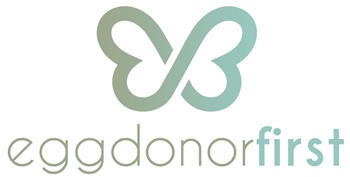Considering becoming an egg donor? It’s a truly selfless act with both rewards and considerations. Egg donation is a process where a healthy woman donates her eggs to help infertile couples or individuals build a family. This blog explores the potential pros and cons of egg donation to help you make an informed decision.
Pros of Being an Egg Donor
- Helping Others: Perhaps the most significant pro is the profound impact you can have on the lives of others. By donating your eggs, you offer the gift of parenthood to couples who may otherwise be unable to conceive. Witnessing the joy of intended parents as they build their families can be incredibly rewarding.
- Financial Compensation: Egg donation often provides financial compensation. This can help cover medical expenses associated with the donation process, such as screenings and medications. It can also help with time off work and travel costs, if applicable.
- Personal Growth: The experience of egg donation can be deeply personal and rewarding. It can foster a sense of self-fulfillment and contribute to your personal growth. The process can also provide valuable insights into the human body and the complexities of fertility.
- Access to Medical Care: The egg donation process typically includes comprehensive medical evaluations and screenings. This can provide valuable information about your own health and identify any potential underlying health concerns.
Cons of Being an Egg Donor
- Medical Risks: While rare, there are potential medical risks associated with egg retrieval, such as ovarian hyperstimulation syndrome (OHSS). This condition can cause mild to severe symptoms, including bloating, abdominal pain, and in some cases, more serious complications. Medical professionals take precautions to minimize these risks, but they are important to be aware of.
- Emotional Impact: The emotional impact of egg donation can vary from woman to woman. Some donors may experience feelings of sadness or ambivalence after the donation. It’s important to be aware that these feelings are normal and to seek support from friends, family, or support groups for egg donors if needed.
- Time Commitment: The egg donation process requires a significant time commitment. This includes attending medical appointments, undergoing necessary procedures, and adhering to medication schedules. You may also need to take time off work for appointments and recovery.
- Legal and Ethical Considerations: It’s crucial to understand the legal and ethical implications of egg donation. This includes understanding that as an egg donor, you typically relinquish parental rights to the resulting child.
Making an Informed Decision
Making the decision to become an egg donor is a personal one.
- Conduct thorough research: Learn as much as you can about the egg donation process, including the risks, benefits, and legal considerations.
- Consult with experts: Schedule a consultation with a fertility specialist or an egg donor coordinator to discuss your individual circumstances, address any concerns, and ask any questions you may have.
- Prioritize your well-being: Prioritize your physical and emotional well-being throughout the entire process.
Egg donation is a deeply personal decision with both rewards and considerations. By carefully weighing the pros and cons and making an informed choice, you can make a significant and meaningful contribution to the lives of others.





